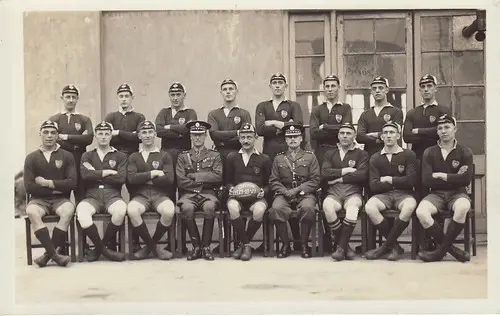
Rugby flourished in many of Britain’s former colonies notably Australia, New Zealand and South Africa. Britain also successfully evangelised Tonga, Fiji and Samoa into the rugby brotherhood. Based on Britain’s success in getting its former subjects to fall in love with rugby you would expect India to be a rugby mad nation, alas the game is almost non-existent in the world’s most populous country.
Why is rugby not popular in India?
Rugby is not popular in India because the British ruling class did not allow the Indians to play or even watch rugby matches. Like polo, rugby was a sport reserved for the ruling elite. British snobbery combined with the hot climate and lack of grass ensured rugby never became popular in India.

Unlike cricket the British kept rugby well out of sight and mind of the local Indians. Not only were Indians not allowed to join rugby clubs they were forbidden from attending games.
Rugby has long been associated with the upper class in England as the game was developed and flourished in the elite private schools of Britain. The upper classes were against foreigners and the working class from ruining their game. In England they had a harder time legally denying fellow citizens the right to play the sport but in India they had a much easier time simply banning Indians from rugby.
As Indians were never allowed to play rugby during British rule they never got a taste for the game. So when the British left India so did their small rugby clubs and the game effectively disappeared overnight.
One of India’s biggest rugby clubs was the Calcutta Club which was founded in 1873 after the successful match between England and Scotland in Calcutta in 1872. The game had caught the eye of many British living in India and to take advantage of this excitement the Calcutta Club was established.
Unfortunately, the club didn’t last long after they experienced a mass exodus of members when they announced that the free bar had to be shut down. Without enough members to keep the club going it was disbanded.
Interestingly, the secretary of the Calcutta Club, G.A.J. Rothney, decided to ensure the name of the club lived on. He withdrew the club’s funds from the bank, which were held in silver Rupees. Rothney had the 270 Rupees melted and made into a cup and gave it to the Rugby Football Union in England in 1878, on the condition that it be competed for annually. To this day Scotland and England compete for the Calcutta Cup.

British snobbery wasn’t the only reason rugby never took off in India. The climate also played a big role. Rothney, the head of the Calcutta Club noted that the decline in members was in large part due to the heat and humidity of India.
Only the most committed rugby players were willing to wear thick jumpers and long socks and run around a dust bowl pitch for 80 minutes in the blaring Indian sun. British colonialists found tennis and polo to be much more enjoyable than rugby.
In an attempt to escape the heat many rugby matches would be held late at night or early in the morning. This inconvenient time limited the number of players and spectators as only the most diehard rugby enthusiasts were willing to interrupt their schedules for the sport.

Despite the lack of popularity of rugby in India, due to the nation’s sheer amount of people, India still has a respectable number of registered players with over 57,000. This isn’t too far behind Italy who have around 80,000. However, it is a far cry from England’s 340,000 registered players.
There is evidence that rugby is growing in popularity in India as more and more young people are playing the game. This trend is set to continue as rugby was recently introduced as a school sport throughout India.
Nasser Hussain, general manager of Rugby India said, ‘”A lot of the players are school kids. It was introduced last year in the School Games Federation Of India (SGFI), with which close to 90 to 95 percent of the country’s schools are registered’.With only 96 clubs in the whole of India, they have a long way to go if they want the sport to reach mainstream popularity.
Conclusion
Rugby never took a hold of India like it did in other British colonies because the English ruling class kept the game heavily segregated. They would not let Indians play or even watch rugby matches. The result was when the British left India so did rugby.
Another factor in rugby’s lack of popularity in India was the unsuitable climate which meant very few British colonialists were interested in playing rugby let alone local Indians. The harsh climate was a big reason for the collapse of the Calcutta Rugby Club which led to the melting down of the club’s endowment and the eventual creation of the Calcutta Cup, contested between England and Scotland.
